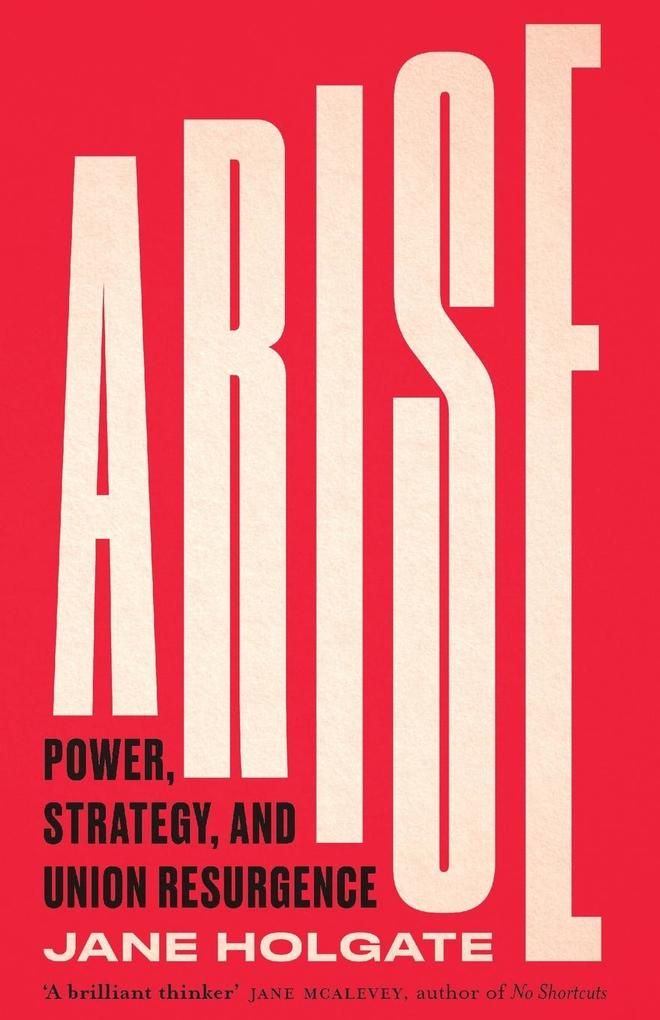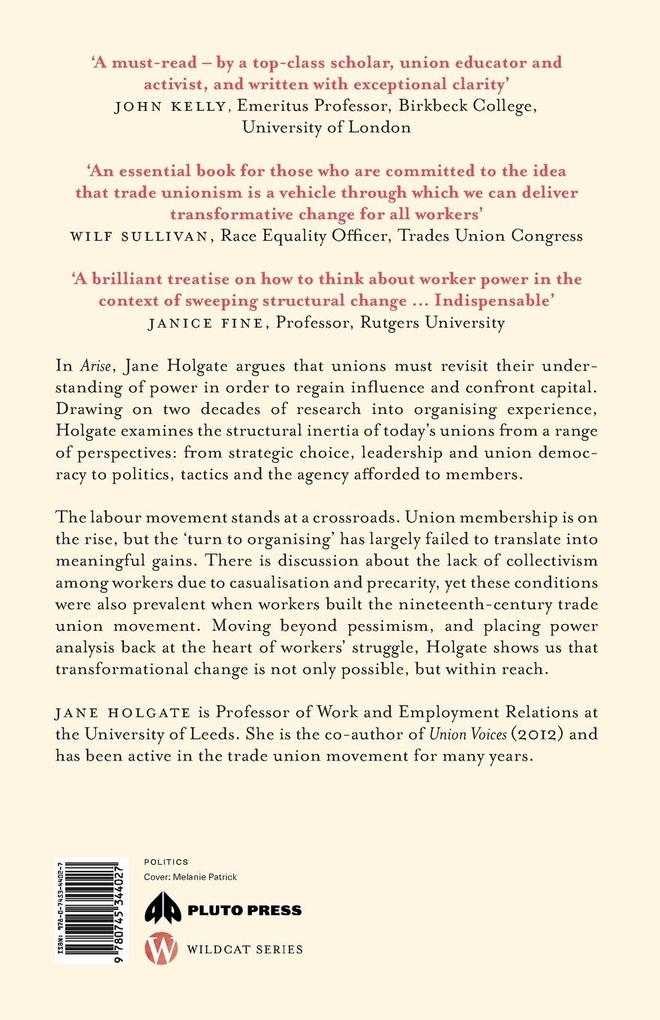
Zustellung: Mo, 21.07. - Mi, 23.07.
Sofort lieferbar
VersandkostenfreiBestellen & in Filiale abholen:
An authoritative overview of the question of power in trade union strategy
InArise, Jane Holgate argues that unions must revisit their understanding of power in order to regain influence and confront capital. Drawing on two decades of research and organising experience, Holgate examines the structural inertia of todays unions from a range of perspectives: from strategic choice, leadership and union democracy to politics, tactics and the agency afforded to rank-and-file members.In the midst of a neoliberal era of economic crisis and political upheaval, the labour movement stands at a crossroads. Union membership is on the rise, but the turn to organising has largely failed to translate into meaningful gains for workers. There is considerable discussion about the lack of collectivism among workers due to casualisation, gig work and precarity, yet these conditions were standard in the UK when workers built the foundations of the 19th-century trade union movement.Drawing on history and case studies of unions developing and using power effectively, this book offers strategies for moving beyond the pessimism that prevails in much of todays union movement. By placing power analysis back at the heart of workers' struggle, Holgate shows us that transformational change is not only possible, but within reach.
Inhaltsverzeichnis
List of Abbreviations
Series Preface
Acknowledgements
1. Looking to the Past to Understand the Present
2. Let's Talk about Social Power
3. Harnessing Power in the Late Nineteenth-Century-Early Twentieth-Century 'Gig Economy'
4. Understanding and Using Levers of Power in the Latter Half of the Twentieth Century
5. Structural Change and the Weakening of the Power of Workers
6. Union Responses to Decline and Loss of Power
7. Organising in Theory: Recruitment in Practice?
8. Leadership, Strategic Choice and Union Power in the Turn to Organising
9. Winning Power is Possible
Notes
Bibliography
Index
Series Preface
Acknowledgements
1. Looking to the Past to Understand the Present
2. Let's Talk about Social Power
3. Harnessing Power in the Late Nineteenth-Century-Early Twentieth-Century 'Gig Economy'
4. Understanding and Using Levers of Power in the Latter Half of the Twentieth Century
5. Structural Change and the Weakening of the Power of Workers
6. Union Responses to Decline and Loss of Power
7. Organising in Theory: Recruitment in Practice?
8. Leadership, Strategic Choice and Union Power in the Turn to Organising
9. Winning Power is Possible
Notes
Bibliography
Index
Mehr aus dieser Reihe
Produktdetails
Erscheinungsdatum
20. August 2021
Sprache
englisch
Seitenanzahl
272
Reihe
Wildcat
Autor/Autorin
Jane Holgate
Verlag/Hersteller
Produktart
kartoniert
Gewicht
388 g
Größe (L/B/H)
216/140/16 mm
ISBN
9780745344027
Entdecken Sie mehr
Bewertungen
0 Bewertungen
Es wurden noch keine Bewertungen abgegeben. Schreiben Sie die erste Bewertung zu "Arise" und helfen Sie damit anderen bei der Kaufentscheidung.














